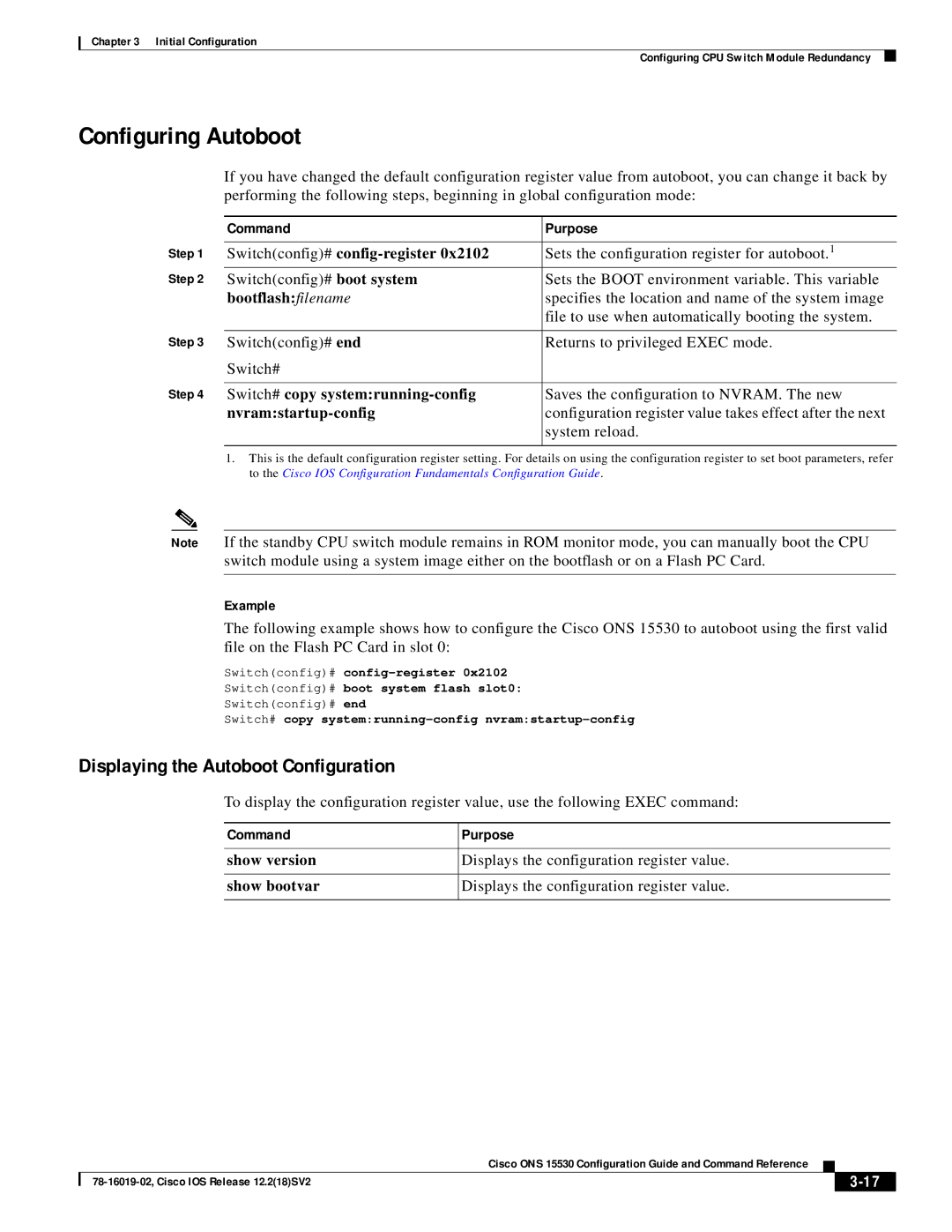
Chapter 3 Initial Configuration
Configuring CPU Switch Module Redundancy
Configuring Autoboot
If you have changed the default configuration register value from autoboot, you can change it back by performing the following steps, beginning in global configuration mode:
| Command | Purpose |
|
|
|
Step 1 | Switch(config)# | Sets the configuration register for autoboot.1 |
Step 2 | Switch(config)# boot system | Sets the BOOT environment variable. This variable |
| bootflash:filename | specifies the location and name of the system image |
|
| file to use when automatically booting the system. |
Step 3 |
|
|
Switch(config)# end | Returns to privileged EXEC mode. | |
| Switch# |
|
Step 4 |
|
|
Switch# copy | Saves the configuration to NVRAM. The new | |
| configuration register value takes effect after the next | |
|
| system reload. |
|
|
|
1.This is the default configuration register setting. For details on using the configuration register to set boot parameters, refer to the Cisco IOS Configuration Fundamentals Configuration Guide.
Note If the standby CPU switch module remains in ROM monitor mode, you can manually boot the CPU switch module using a system image either on the bootflash or on a Flash PC Card.
Example
The following example shows how to configure the Cisco ONS 15530 to autoboot using the first valid file on the Flash PC Card in slot 0:
Switch(config)#
Switch(config)# boot system flash slot0:
Switch(config)# end
Switch# copy
Displaying the Autoboot Configuration
To display the configuration register value, use the following EXEC command:
Command | Purpose |
|
|
show version | Displays the configuration register value. |
|
|
show bootvar | Displays the configuration register value. |
|
|
|
| Cisco ONS 15530 Configuration Guide and Command Reference |
|
| ||
|
|
| ||||
|
|
|
| |||
|
|
|
| |||
